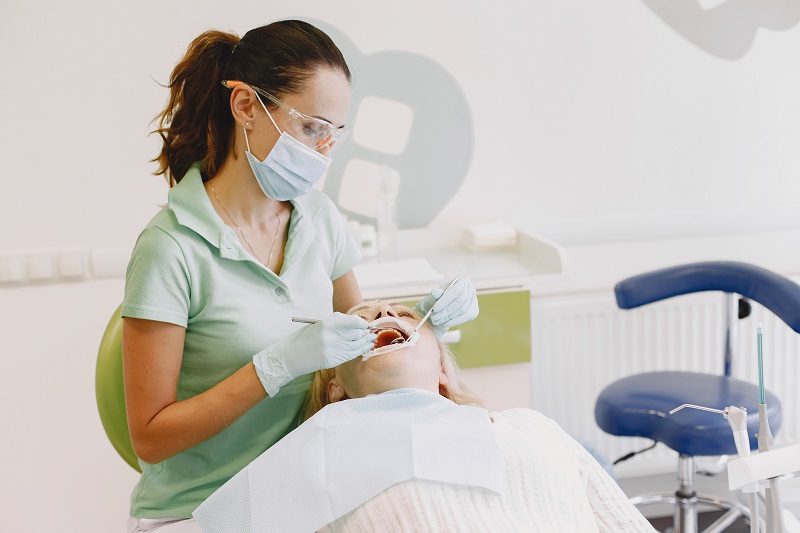A shining dental crown is a sign of oozing confidence. A qualified dental hygienist can help you keep the natural shine of your teeth intact, infections at bay, and make your smile infectious. Beyond beauty and appeal, oral care is a must not just for overall health but wellness as well. Your dental hygienist focuses on cleanliness to avoid the occurrence of stains, prevent gum diseases, and most importantly, help you learn a routine oral care regimen. Prevention is better than cure and a dental hygienist will ensure optimum dental cleaning to keep your teeth safe from cavities, bad breath, and other costly cosmetic interventions in the future.
Why is Oral Hygiene Important?
The buccal cavity is one of the most dynamic spaces in the human body. Nobody likes to have teeth deformities, but wear and tear are bound to happen with age. You can delay the onset of wearing effect if you follow a disciplined oral health regimen. Perfect teeth make your smile perfect, but oral health is much more than just an adorable smile. Regular brushing, flossing, and a healthy diet are must, but sometimes you might need the intervention of a trained hand to do the dental cleaning job to keep oral infection away from your precious teeth and gums.
Your teeth are an indicator of your overall health. A great muscular body with stained teeth is definitely not a great sign. Your dental hygienist can help you maintain healthy teeth free of stains, plaques, and gums disease. Timely intervention could save your teeth, money, and most importantly the painful dental procedures. You must be aware of early signs so that you would seek dental hygienist advice in time and follow an oral hygiene regimen to control tooth decay and gum disease.
Daily Oral Hygiene Tips
Who doesn’t want to have sparkling teeth and an infectious smile, but it is not an easy task to keep teeth and gums in good shape in the long run. Here are some of the tips you can follow to keep teeth and gums healthy.
- Ideally, a healthy person should brush teeth twice a day, gently for two minutes each. You should change your brush before it starts hurting your gums.
- Fluoride strengthens teeth enamel and it gives protection against plaque. You should use fluoride toothpaste for brushing.
- The gap between teeth traps food particles, which could be a fertile ground for bacteria to grow. Flossing once in a day helps in keeping teeth clean and gums healthy.
- Gargling with antibacterial mouthwash could help you keep breath fresh and fight gingivitis.
- On the preventive side, you should reduce sugar intake to avoid tooth decay.
- A healthy and balanced diet rich in calcium, protein, and minerals is necessary for healthy teeth and gum.
- You should drink optimum water to keep your body hydrated.
What Should be the Frequency of Visit to Dental Hygienists?

Senior woman having dental treatment at dentist’s office. Woman is being treated for teeth
Ideally, a person with a normal dental structure should visit a qualified dental hygienist every 6 months for a normal check-up and cleaning. If your dental structure is complex or you are wearing braces, you should visit an oral hygienist as recommended by your dentist. Dental hygienists follow the cleaning procedure in stages, namely:
- Dental Assessment
The procedure begins with a detailed examination of the dental system. The idea is to detect any sign of teeth decay, gum disease, the status of fillings, and other restorations. If required, the dentist could recommend an x-ray for further examination.
- Teeth Cleaning
Following examination, the dentist will use advanced tools to remove plaque and tartar and bring a natural sign of your teeth. Selection and use of technology could vary depending on complexity.
- Fluoride Treatment
Some dentists prefer applying fluoride to your teeth to strengthen enamel. Stronger enamel keeps plaque away.
A professional dental hygienist will discuss dental ailments with you and suggest suitable dental treatments. Cleanliness is the cheap and best way to keep the crown shining and stay away from painful dental treatments.
